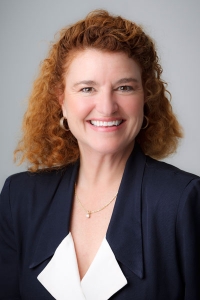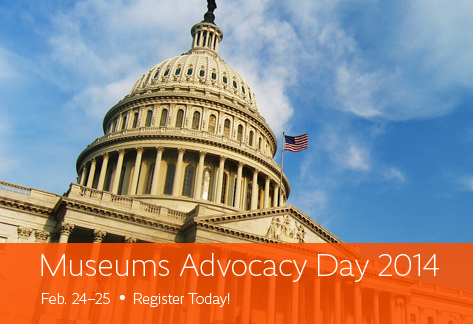By Lauren Valone
 I first met Jayceen Craven Walker, President of the Utah Museums Association and a Government Relations and Advocacy Associate at Pathway Associates, at the Western Museums Association (WMA) 2013 Annual Meeting. We were both stuffing registration packets, and she really struck me with her vibrant personality and willingness to help out with all tasks. I am a novice to most things advocacy-related, and as WMA gears up for Museum Advocacy Day 2014, Jayceen was the first person I could think of to pick her brain about her 25 years worth of experience advocating for museums.
I first met Jayceen Craven Walker, President of the Utah Museums Association and a Government Relations and Advocacy Associate at Pathway Associates, at the Western Museums Association (WMA) 2013 Annual Meeting. We were both stuffing registration packets, and she really struck me with her vibrant personality and willingness to help out with all tasks. I am a novice to most things advocacy-related, and as WMA gears up for Museum Advocacy Day 2014, Jayceen was the first person I could think of to pick her brain about her 25 years worth of experience advocating for museums.
Getting to know Jayceen in Salt Lake City, I came to see that she continuously exerts her passion for museums as well as the other organizations she advocates for. She teaches an Advocacy 101 course, and with this in mind I began the interview asking the most fundamental question: Why is it important for museums to advocate for themselves? Jayceen returned my question asking, “If museum professionals don’t advocate for their museums, then who will?” She went on to explain that advocacy is community driven and about education, specifically about “…who you are and what you do – legislators may have no clue.” Furthermore, they may not be aware of how even little amounts of money can have a significant impact on an organization, especially smaller ones. Likewise, it is important to start building these types of relationships now as money is starting to be reinstated in budgets, according to Jayceen. “The more you build your relationships with your city, state and federal legislators, the more museums can get done.”
While I’m familiar with the advocacy petitions I receive in my email inbox, I asked Jayceen to elucidate about where to start. She reinforced (throughout our discussion as well) that it is important to start your museum’s groundwork at the local legislative level. “It is better to work from the ground up building grassroots efforts first. Museums need to find out who their legislators are. Who is mayor? Who is PTA representative? Who is on the city council? Become educated in who those people are, and then make contacts.” She then put the importance of starting local into perspective by giving the example of grant-seeking. She stated, “The more people that support your museum, the better. If you museum is applying for an IMLS grant, who better to write you a recommendation than your city’s mayor?”
She went on to explain that it is important to determine who your personal (the place where you live) and organizational (where you work) legislators are. She gave the example, “Say you have an issue in your museum – talk to your both your personal or organizational legislators. You then have four opportunities to have your issues addressed.” Jayceen went on stating that the best time to talk to your legislators is two weeks after their sessions. “Then keep inviting them and their staff to your museum and every special event you have. Even invite their spouses. Make sure to take pictures, then post them on your website and social media because it shows to the world that those officials are buying into your organization.” However, she cautioned, “The first couple of times you meet with a legislator, don’t ask for anything. You don’t want a bad taste associated with you and your museum.”
With so much talk about forecasting and strategic planning in the museum world, I thought it important to ask Jayceen about how advocacy – both to governments and others – plays a part in this way of thinking. “Strategic and long-term planning goes back to networking with legislators. With long-term networking, your museum will be better off because you will have organizational buy in,” Jayceen stated. This is also known as starting with the end in mind (Click here for a Pathway Associates article about this mindset). She described an example where, “…a current board of an organization is looking to construct a new building in 5-10 years. Those advocates need to make the connections now because 5 years down the line those legislators will still be in office. If you start now, you can realize goals when you want to.” It is the length and success of building those relationships that determines when it is appropriate for an organization to ask for support from its legislators.
When advocating for a museum, it is also important to create both a personal and organizational brand. Jayceen also explained that personal and organizational brands could be one and the same. When museums are creating their brand, they, “…need an advocate who isn’t afraid to talk to people, willing to make connections, and is willing to make the ultimate ‘ask.’” Additionally, it is crucial for all legislators to be able to easily recognize a museum itself, as well as its advocate. Advocates should wear something that identifies them and their organization so people know who they are what they represent. She went on to give an example where she was out shopping: “I heard my name being randomly called and it ended up being the mayor of Salt Lake County. He recognized my voice, and looked over and saw my hair. Legislator’s know me because of my hair!” Ultimately, their legislators should know museum advocates as the “museum person.”
With our conversation winding down, I asked Jayceen for some lessons she’s learned during her career. She offered up these bits of advice:
- “Do not lie or fudge information. Once you burn legislators, they will never listen to you again. Your integrity as an advocate is huge.
- Know your facts, and if you don’t know, be honest. This actually allows for follow-up opportunities and it opens the door for more communication.
- Whenever you are wrapping up a conversation, ask for advice or suggestions for your organization. You don’t need to follow-up in terms of actions immediately, but it provides another reason contact. If your organization acts on that advice, make sure to tell that legislator, as it will make him or her feel that their advice was appreciated.
- Museums often times like to put public officials on their boards. However, organizations need to be very cautious when doing this because legislators generally have their own agenda. You want them to be involved, but not driving what happens in your museum.
- Above all else, show passion for your organization!”
Advocacy is really about building relationships, or a support unit. In our personal lives, we would never fathom doing everything alone. I think Jayceen put it best saying, “If you don’t talk to your legislators, then how will they know what your organization offers. Museums have so much knowledge to offer. If you don’t talk about your museum, then no one will.” Museums are embedded within the web of their communities and do not hesitate to provide public services. Likewise, they need to make sure that their voice is heard so that public officials can in turn serve them as they reach their needs and goals.
 WMA members receive a free registration to Museum Advocacy Day 2014. Please contact the WMA for details and to obtain the code for a FREE registration. Register for Museum Advocacy Day 2014 here. The registration deadline is January 24, 2014.
WMA members receive a free registration to Museum Advocacy Day 2014. Please contact the WMA for details and to obtain the code for a FREE registration. Register for Museum Advocacy Day 2014 here. The registration deadline is January 24, 2014.
Lauren Valone is the Program Coordinator for the Western Museums Association. She has served on the Marketing Committee of the Waterworks Museum, and as Web Content Manager and Production Manager of Publishing and Social Media for an independent publisher. She holds an MA in Museum Education from Tufts University, a BA in Studio Art, Photography from Lewis & Clark College, and has been published in and copy-edited for the Journal of Museum Education.








Add new comment